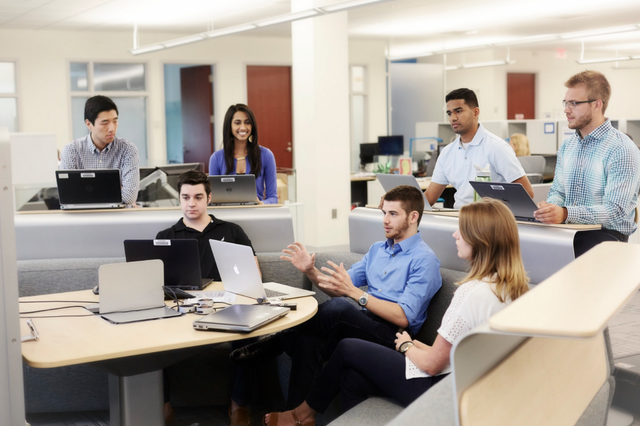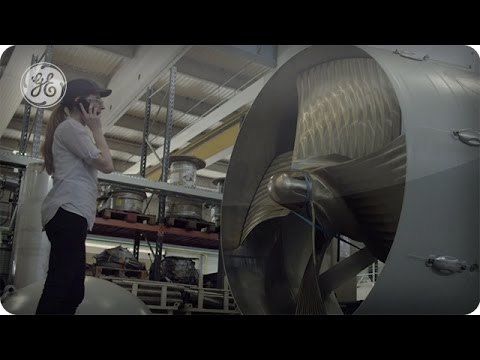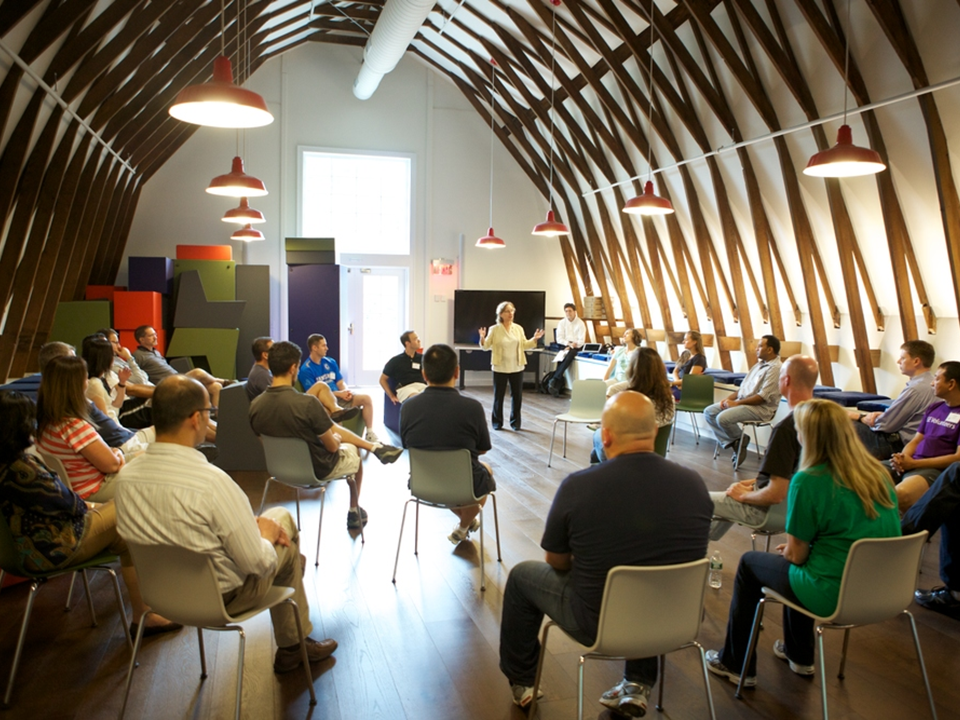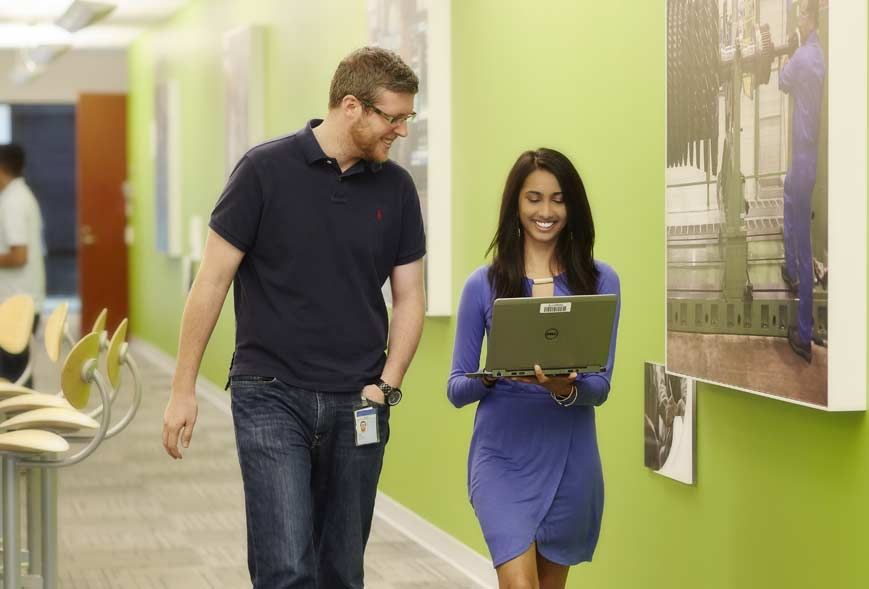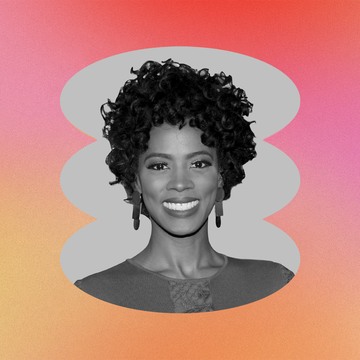GE began in 1892 with Thomas Edison's light bulb and went on to create some of the most important devices in modern history — such as the X-ray machine, electronic locomotives, and the electric fan. Today, the company innovates in more than a dozen industries — from aviation and retail to health care and food and beverages.
Headquartered in Fairfield, Connecticut, and with offices in 175 countries, GE employs 305,000 people — 136,000 in the U.S. — who enjoy perks such as on-site fitness and medical centers and flexible time off, where each employee picks how much time he or she needs for health, personal, and vacation time.
"At least one third of our hires are Millennials ranging from university grads to experienced professionals," says Shaunda Zilich, global recruitment marketing leader. She shares tips on how to stand out as an "innovative thinker" in a competitive marketplace.
What qualities do you look for in every candidate?We look for people who are creative, take initiative, and love solving problems. We look for judgment, accountability, resilience, teamwork, flexibility, and curiosity and desire to learn.
How often do you hire new people?Last year we hired over 9,000 people in the U.S., and that is fairly typical. We usually have hundreds of openings at any given time.
What areas of the company are growing fastest right now?Our energy sectors and our digital space are growing the fastest, particularly with engineering and IT and software jobs.
What do you expect candidates to know about GE before an interview?I would expect candidates to know about our emergence as a digital industrial company and what that means.
Where do you recruit candidates?Most come to us directly through our careers site since this is the most direct route. But we also continue to branch out to find great people at conferences and online forums and other sources like LinkedIn. Employees also give great referrals.
What types of conferences and career fairs do you attend to network with potential candidates?We love to engage with great talent and we are on college campuses and [at] a wide variety of conferences — like the Grace Hopper Women in Computing Conference and the Society of Hispanic Professional Engineers.
How can candidates interact with you on social media to stand out?We [have] over 100 social media [accounts] to represent careers at GE. Some of these are specific to each of our businesses or regions. We love candidates to interact on these channels, ask questions, and provide feedback. One thing to avoid is asking recruiters or GE employees to review your profile or résumé, and tell you what jobs to apply for. It's important for you to apply for the positions that meet your interests and qualifications.
Do you look up candidates online to check out how they represent themselves?Generally we look at LinkedIn to provide a professional profile of the candidate and do not research on other personal channels.
What types of jobs are available for recent graduates?Our rotational development programs [entry-level, full-time positions that present a broad range of GE jobs] offer recent grads one of the best ways to build functional expertise and a strong foundation for future leadership roles. They offer a variety of experiences and high-quality training for finance, engineering, and more. One-third of GE's senior leaders began their careers in these programs.
Do you have an internship program?Internships are such an important opportunity for students as they explore careers and get a first-hand experience with our team. In general, we require university students [to have] a 3.0 GPA and [be in] a related field of study to the internship. We offer internships and co-ops in engineering, manufacturing, finance, sales operations, software, IT, and more. In each case, interns work on projects related to the work area with other colleagues.
Are interns paid or do they receive college credit?We offer paid internships.
Do you regularly hire interns into full-time roles?Most of those we hire into our full-time [rotational development and] leadership programs started as interns.
Do most full-time positions require a specific degree?We hire a range of talent who have degrees in engineering, business, liberal arts, and other fields of study. Some openings require specific degrees while others don't require a degree at all. Most of the time we are looking for the best person for the job, and that can come from a degree or experience.
What types of questions do you typically ask in an interview?We want to hear about times you have carried out a role or skills that will make you successful in the role that you are interviewing for. The more specific examples and situations the candidate can give and specify their exact role in that project or effort, the better we understand if they will be able to be successful in the role they are interviewing for.
A couple of my favorite questions are: Describe a time when a setback inspired you to rethink what you were working on and work toward a successful outcome. What did you do and how did you do it? Describe a time when you made a change to improve a process or project. How did you go about that change?
What questions should candidates always ask you in an interview?Ask questions to help you ensure fit. For example, "What does an everyday look like for this job or the person doing this job?" or, "What can I expect to do be doing a couple weeks into the job?"
Is it OK to bring up salary?We want to be transparent with candidates and want them to be transparent with us. We do not want to waste someone's time if the job they are interviewing for does not meet their expectations. I think [salary] is something you bring up after you know more about the company benefits so that you see the whole picture.
What's a mistake people make in interviews all the time and don't know it?It might sound simple, but it's OK to express interest and enthusiasm. Don't be too reserved about your interest in the job. We want to know that you want us too.
Do you want people to talk about their nontraditional experience, such as volunteer work, extracurricular activities, and hobbies? Why is this valuable?We want well-rounded people and if those experiences were relevant for you, they are relevant for us. Each situation in our lives allows us to gain experience and skills in some way. I was talking with a recent college graduate one time and he mentioned how he did not have any other previous jobs to highlight on his LinkedIn profile. The more questions I asked, I found out he made money each summer by mowing lawns. We turned that experience into how he was able to gain leadership skills, establish strategy for his business, manage accounts, and implement marketing plans.
What is the interview dress code?Well first, it is always OK to ask if you're unsure. Hiring decisions will not be made on apparel but if you are dressing for the role, you're one step closer to the first day on the job.
Do thank-you cards or emails matter to you?Showing appreciation is a great quality, so I'd recommend a simple thank-you note. However, a thank-you note will not make or break the hiring decision. We hire the best person for the job.
Interview Insider is weekly series offering tips for getting a job at some of your favorite companies. Check back every Thursday for the latest interview.
Follow Heather on Twitter.
